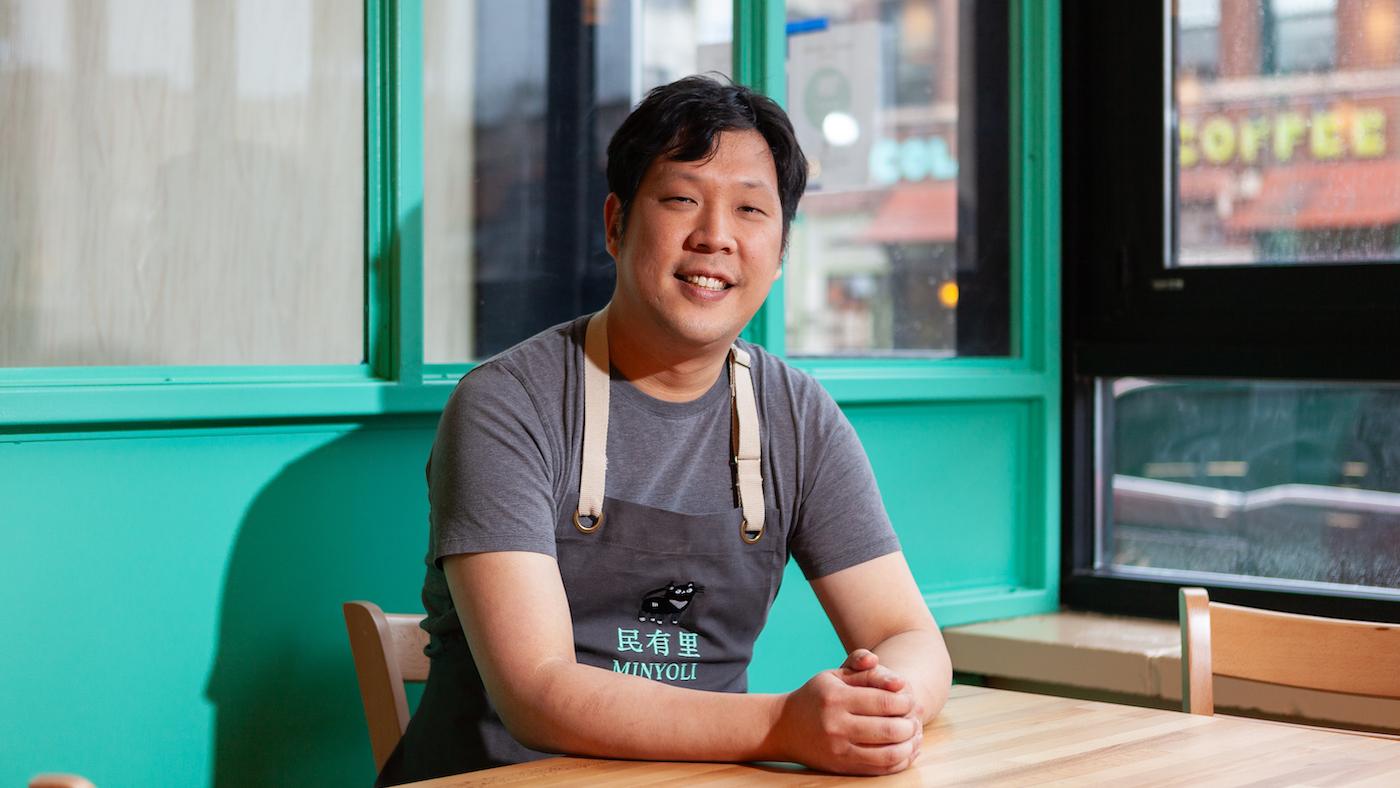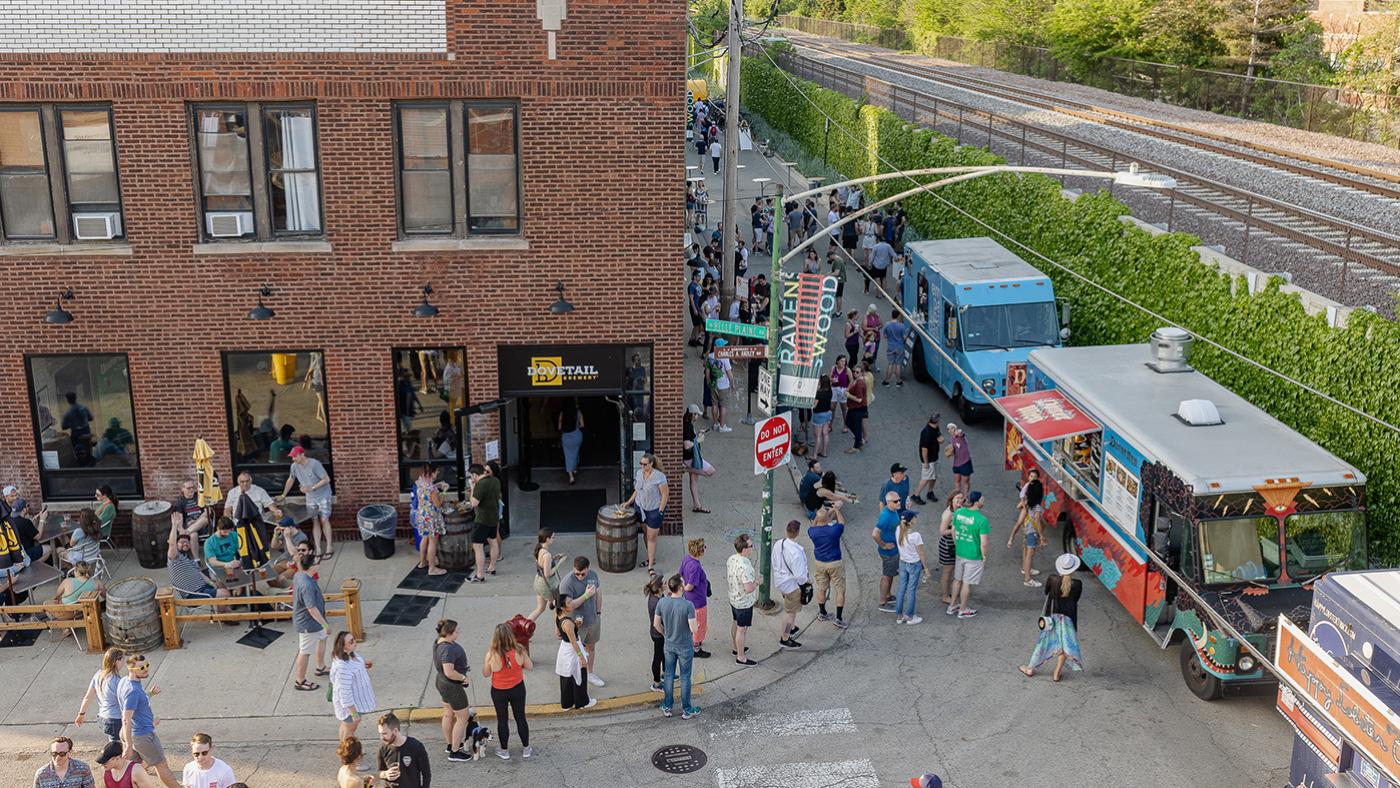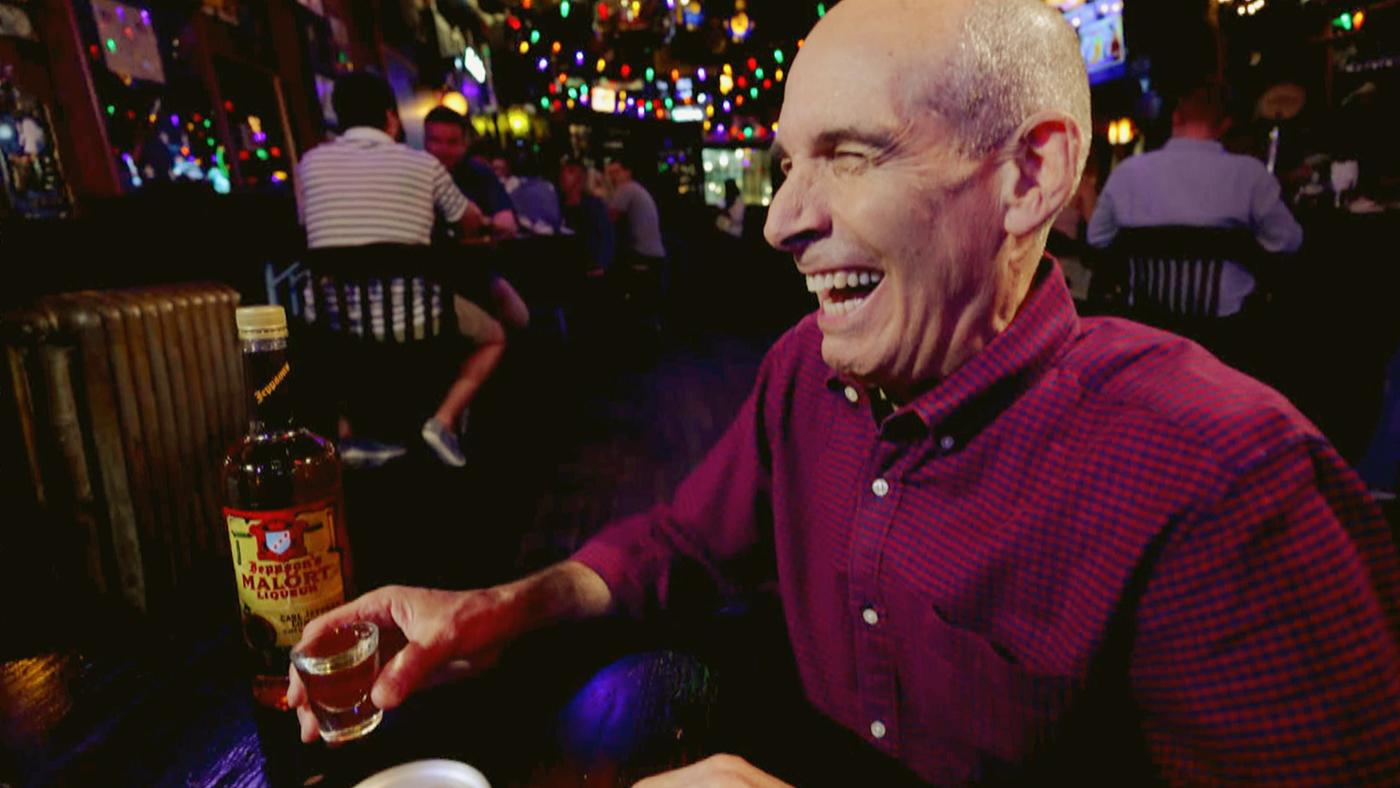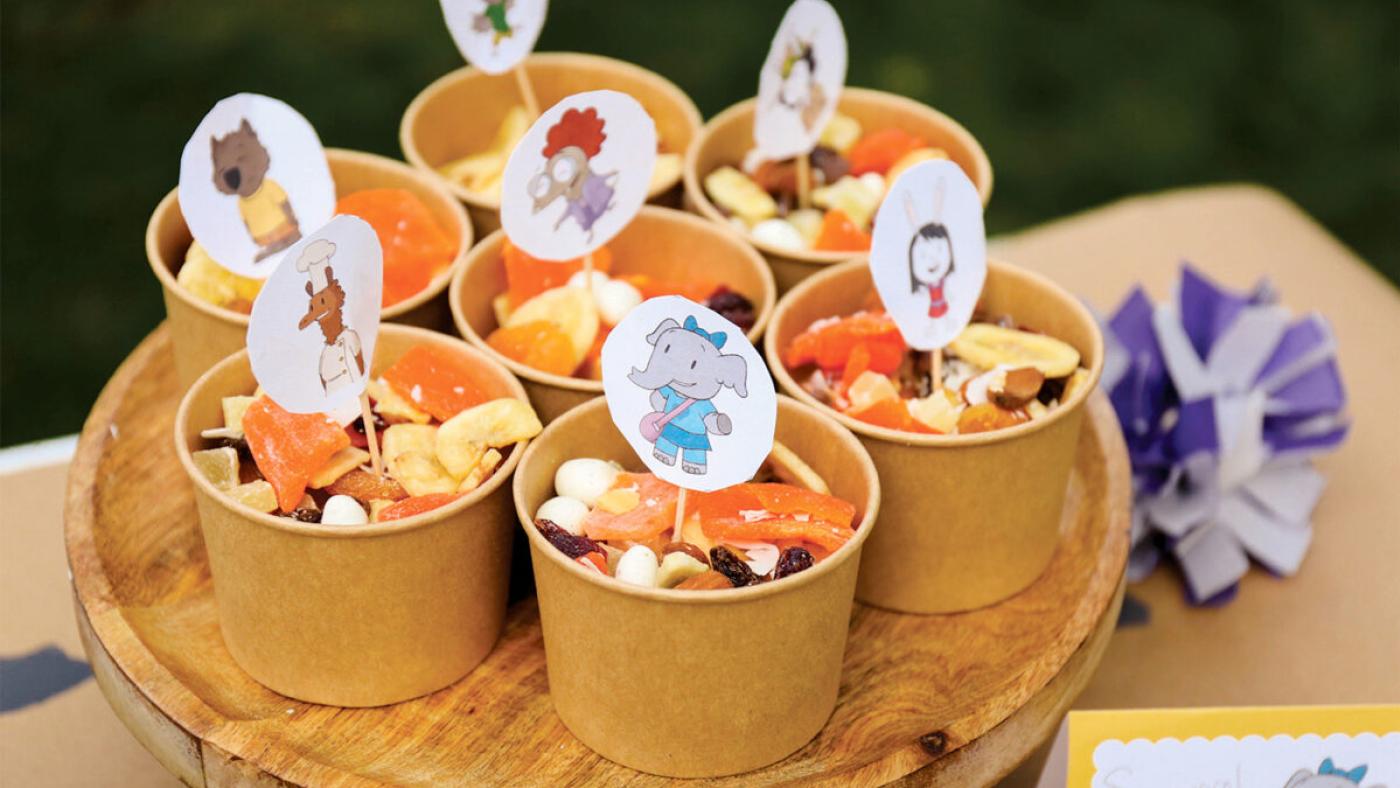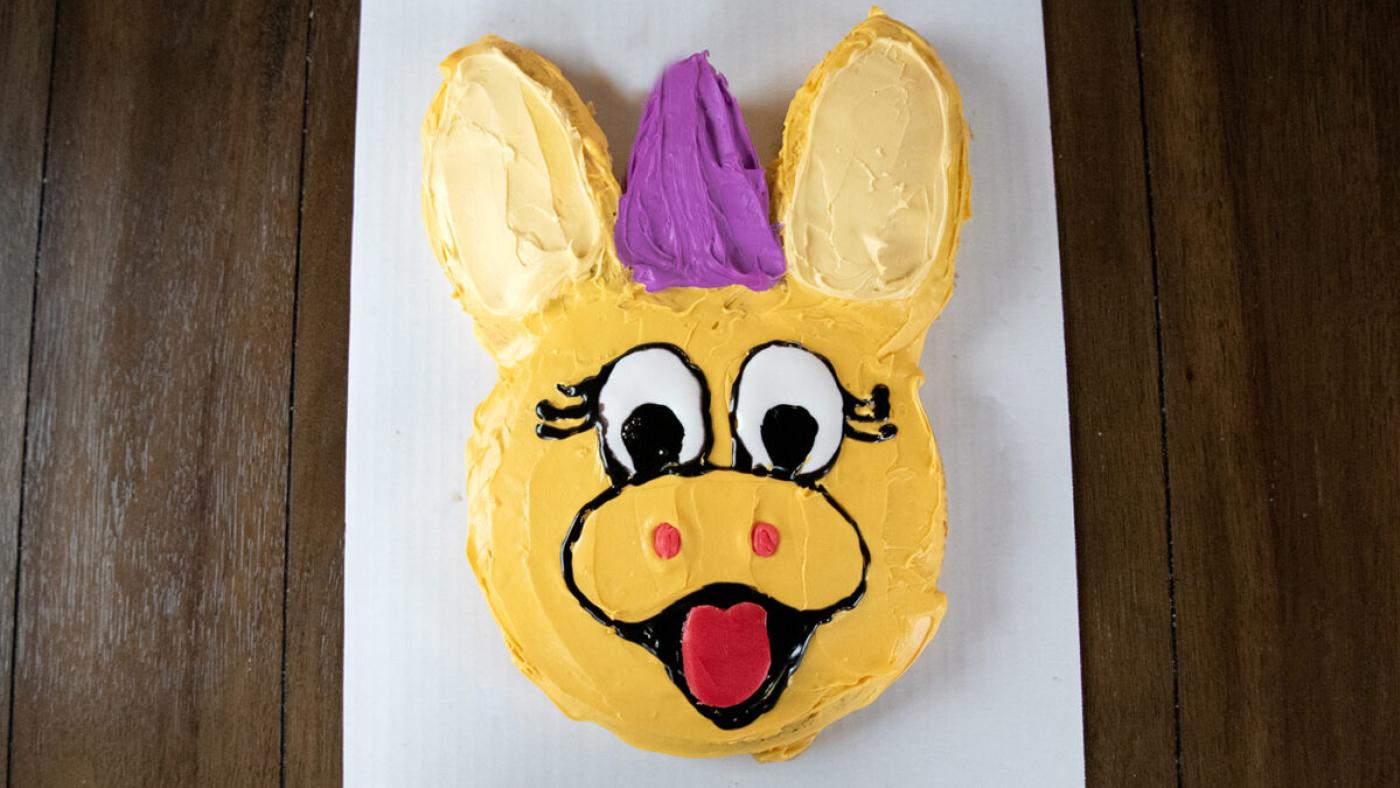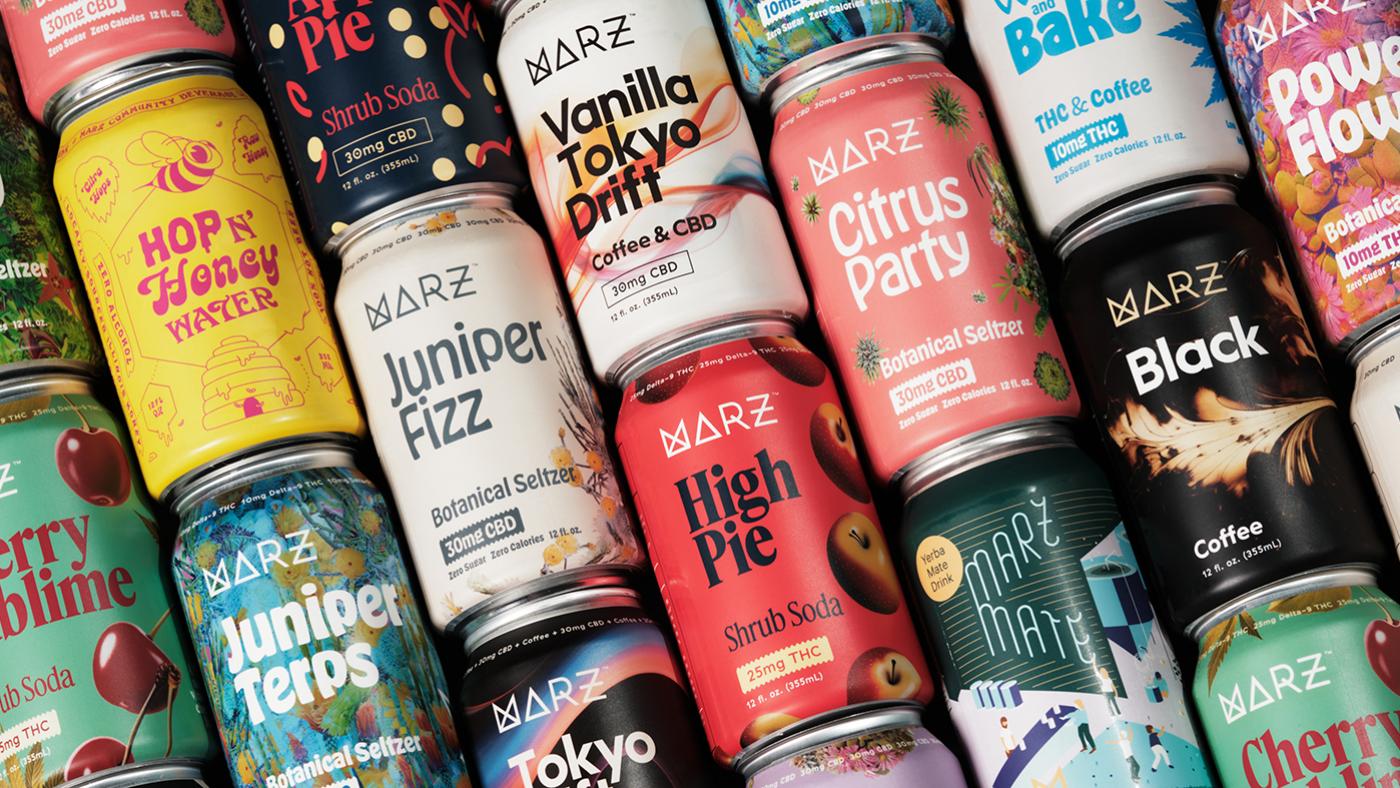This Mythology-Driven, Suburban Chicago Brewery is Here to Serve ‘Nerds, Creatives, and Revolutionaries’
Meredith Francis
July 28, 2023
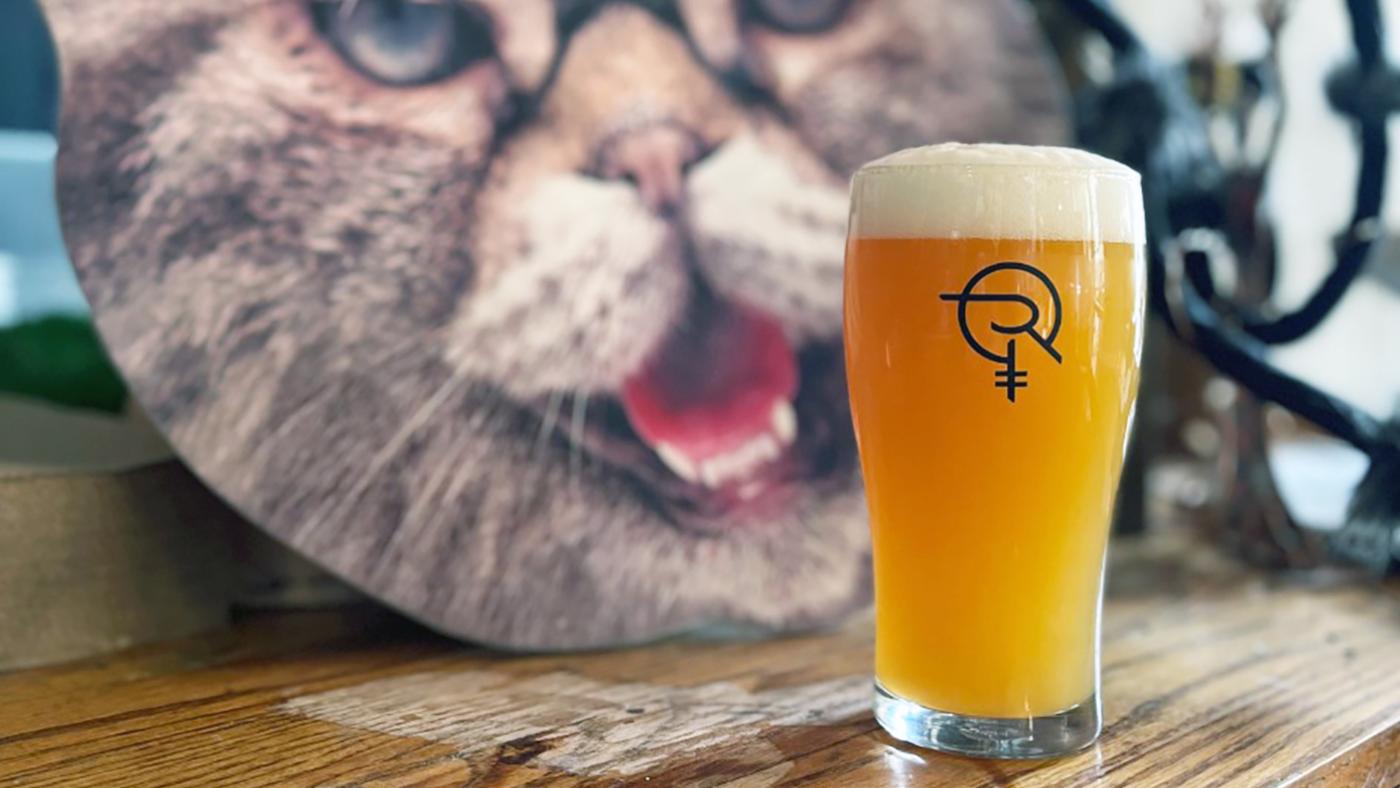
Get more recipes, food news, and stories by signing up for our Deep Dish newsletter.
At Rabid Brewing in south suburban Homewood, Illinois, a large painted canvas mural that serves as the dividing line between the taproom and the brewhouse establishes the fun and distinctive aesthetic of the brewery.
“I like to explain it as our thoughts and musings on the origins of beer,” says Raiye Rosado, co-founder and president of Rabid Brewing.
In the origin story, which was painted by artist Annabelle Popa, a being called the “Rabid God” is creating beer from a river. He’s got the help of two other figures, who are stand-ins for Rosado and her husband, co-founder, and brewmaster, Tobias Cichon. The figures help the Rabid God collect hops and other materials to make the beer.
It’s a creative myth, and it comes from two people who set out to form a brewery that would serve as a welcoming space for people from all walks of life.
Rosado and Cichon met in high school at the Chicago Academy for the Arts. Cichon studied creative writing, and Rosado studied in the music department. Rosado emphasizes that is not when they started dating. Cichon jokes that’s because she was “scared of him.”
“We were all artists or doing our various artist things, presenting ourselves in different ways. And I had a look about me that was probably not the most amiable of looks,” Cichon says with a laugh. “I was a little bit more on the goth side of things.”
They got married later down the road, and they were both working in the tech industry when Cichon wanted a new five-year plan. That plan was to open a brewery. He began with at-home brewing to start.
“Once I got the beer to a certain point, Raiye pretty much whipped out her laptop and started writing up a business plan,” Cichon says.
They beat their deadline, too.
“We were able to open up four years and 50 weeks to the weekend where he pitched that idea to make a five year plan,” Rosado says.
The brewery that they opened in 2017 is what Rosado describes as “industrial barbarian.” There is “art exploding everywhere you look,” with chalk art on the walls and sculptures around the space. Their fascination with mythology is the inspiration for all of it.
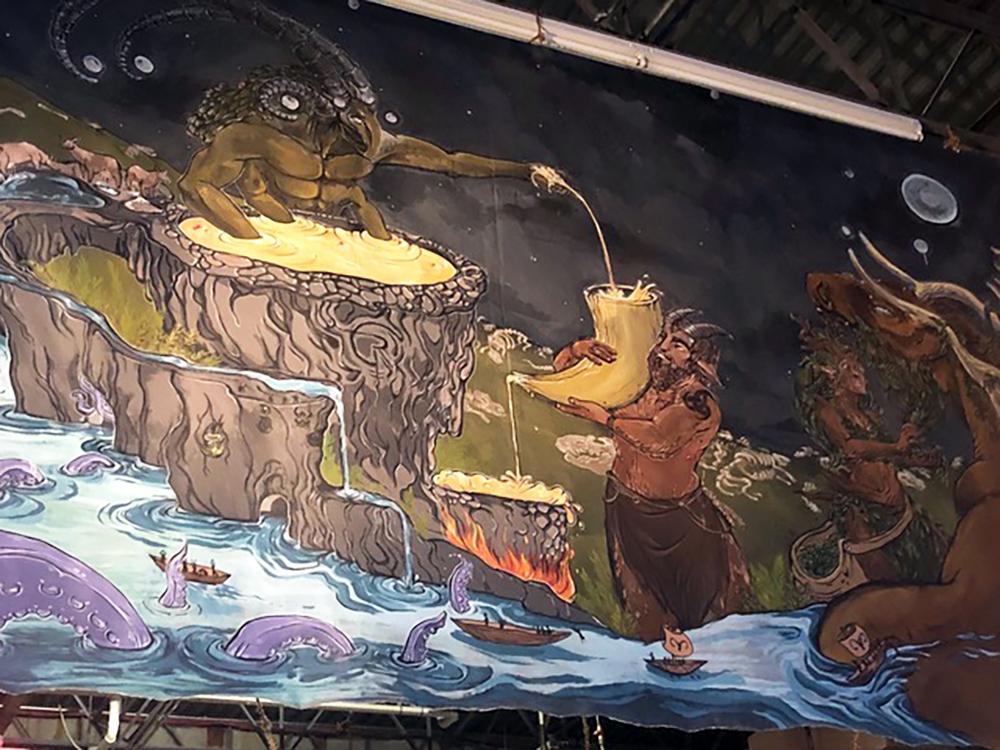 The mural at Rabid Brewing depicts the "origins of beer." Image: Courtesy of Rabid Brewing.
The mural at Rabid Brewing depicts the "origins of beer." Image: Courtesy of Rabid Brewing.
“When we started out, one of the concepts was, what if we made a beer that was the drink of mad gods—something grandiose,” Cichon says. “But really, we just ended up appreciating so many pieces of mythology throughout the ages from so many different parts of the world.”
They cite influences from Egyptian, Indian, Babylonian, South American, and Central American mythologies, or, “You know, anywhere that you find beer,” Cichon says lightly. The mythology inspires the beer itself, too, which is brewed entirely in-house and has names like Bewytched, Technomancer, Dwarves of Doom, and Gnome City. As creative people, they see beer as another storytelling medium.
“We wanted to build our own stories about everything, build stories about beers, build stories about where all these things come from—completely ludicrous stories,” Cichon says. For example, one beer might come from “snakes drinking all of Lake Michigan.”
“We have been repeatedly told that we make the best hazy IPAs in the Chicago southland,” says Cichon of the beer they serve, adding that a pilsner they call an American Werewolf Lager is also popular with their patrons. To their surprise, they have had past success with a fruited beer, too.
“It was just beer enough to be beer, just fruited enough to satisfy people who were like, ‘I'm not sure I like beer,’ and tart enough to satisfy someone who wanted a sour,” Rosado says.
In addition to their brews, creating a sense of community is important to the founders of Rabid Brewing. Each year, they hold a large festival called “The Feast of the Goat Queen,” yet another way to get some creativity and mythology into their business.
The annual summer party was recently held in July and evokes the ancient Roman Feast of Floralia, which was a celebration of agriculture and fertility. They lovingly call it “renfaire for the fae folk.” The event features a “goat queen,” baby goats to play with, fairy costumes, and, of course, food and beer. This year, they had a burlesque fire dancer and wrestling matches to “battle for the honor of the queen.” All in all, an eclectic good time, or, as Rosado puts it, “it was a whole darn thing.” It’s a popular event for them, with attendees coming from all over the country.
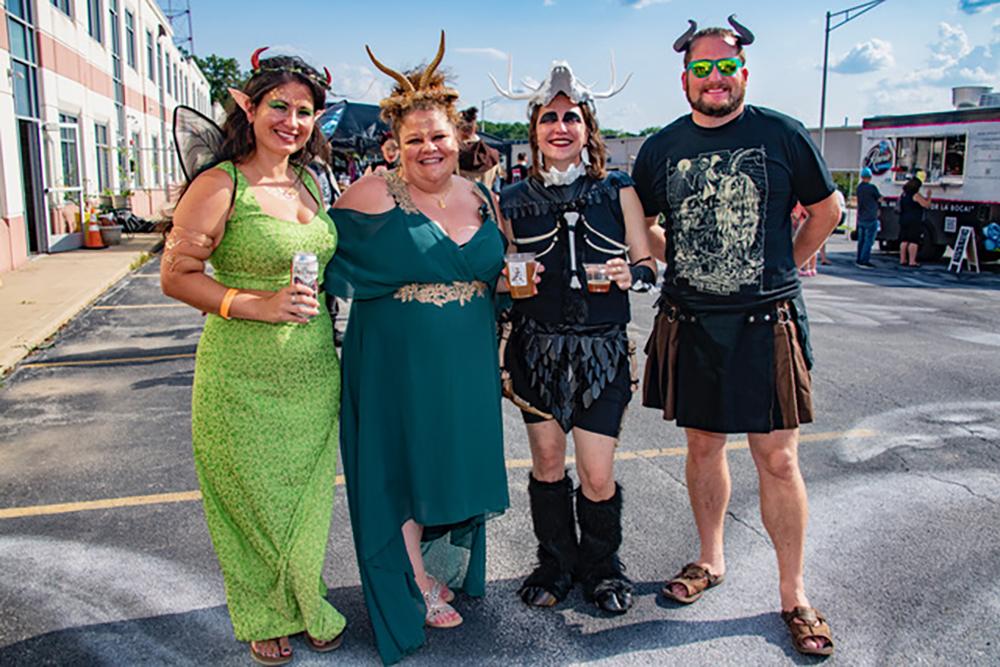 Attendees of the Feast of the Goat Queen are encouraged to dress up for the event. Image: Courtesy of Rabid Brewing
Attendees of the Feast of the Goat Queen are encouraged to dress up for the event. Image: Courtesy of Rabid Brewing
“Part of our entire drive here is that we've been basically bringing the party,” Cichon says. “This has all been about creating this wonderful party that happens all the time.”
The events they host, including Dungeons and Dragons games on Wednesdays, are part of a business strategy, but it’s about the tone they want to set for their community.
“What we really tried hard to do, and I think we've been successful at, is trying to be more attractive and more welcoming to groups that don't usually get a whole lot of play,” Rosado says.
Which groups are those?
“Nerds, creatives, and revolutionaries,” Cichon says. “That’s really the core of the people that we speak to and that come in and really love us and love what we give them and what we build for them.”
Cichon says that as art school kids, they both felt “on the outside,” drawing looks for how they dressed or expressed themselves, so that feeling drives their mission. Representation matters to them, so they do small gestures such as providing menstrual products in both the women’s and men’s restrooms to communicate, says Rosado, that “we care about your needs, and we're not assuming what they are.”
This is important to Rosado, who is a woman of color in a male-dominated industry. She has seen a promising shift happen in recent years, though. When she first attended a meeting at the Illinois Craft Brewers Guild several years ago, she says there were maybe 20 women in the room, compared to 450 men. The imbalance is still there, but now there are closer to 60 women. Still, it can be a challenge. Rosado says while working events or tending the bar, she has sometimes been mistaken for an employee, or a woman just “helping out her husband,” rather than the boss.
“Are you kidding me?” Rosado remembers thinking in those moments. “But it’s helped me to start to advocate for myself a little bit better.”
Cichon’s and Rosado’s experiences only reinforce their desire to make their space as open as possible.
“We want people to feel welcome and to feel like they have a place,” says Cichon—a place to kick back with a beer, pet a baby goat, play D&D, or dress like a fairy, free from judgment.

